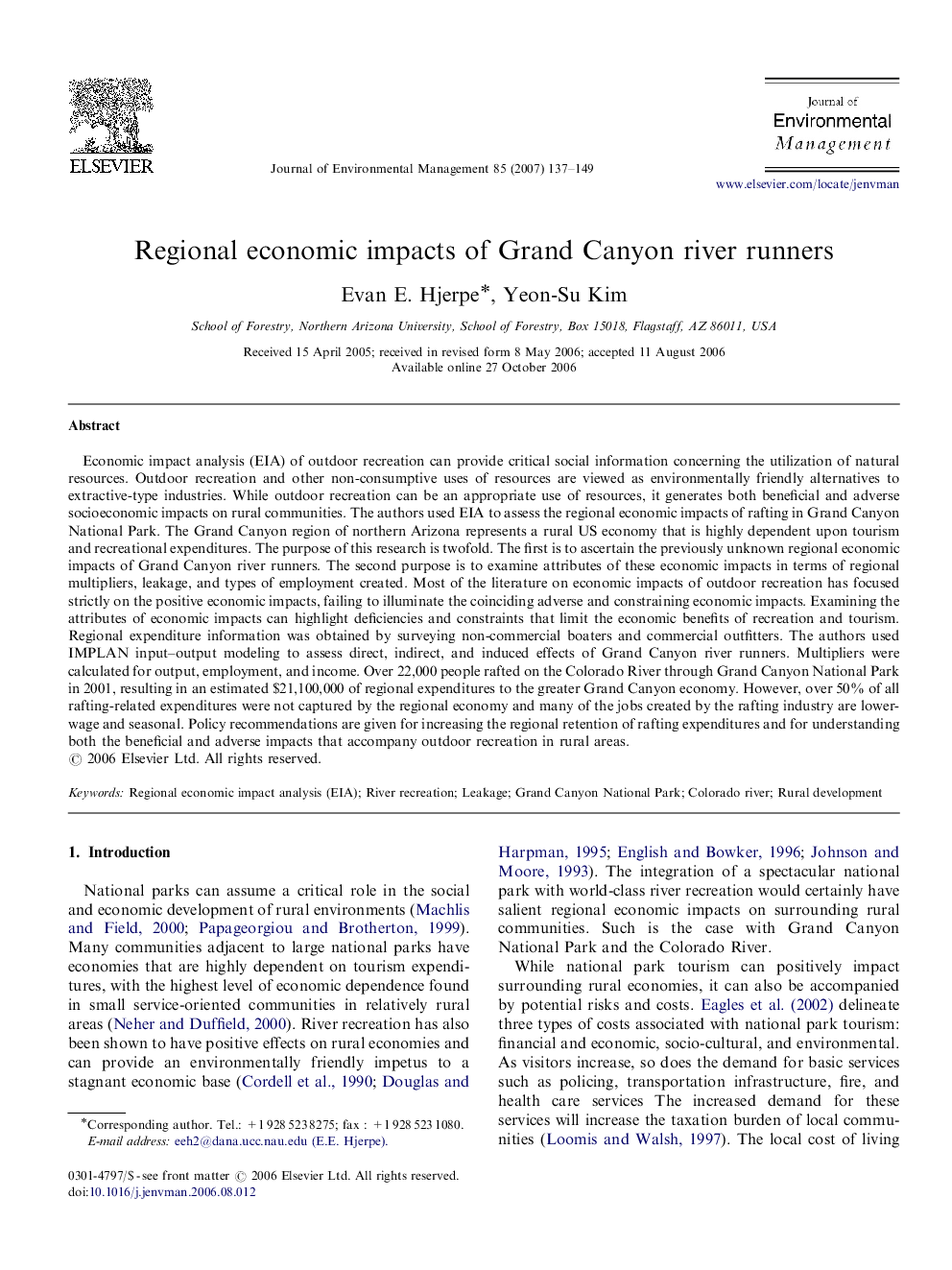| Article ID | Journal | Published Year | Pages | File Type |
|---|---|---|---|---|
| 1058587 | Journal of Environmental Management | 2007 | 13 Pages |
Economic impact analysis (EIA) of outdoor recreation can provide critical social information concerning the utilization of natural resources. Outdoor recreation and other non-consumptive uses of resources are viewed as environmentally friendly alternatives to extractive-type industries. While outdoor recreation can be an appropriate use of resources, it generates both beneficial and adverse socioeconomic impacts on rural communities. The authors used EIA to assess the regional economic impacts of rafting in Grand Canyon National Park. The Grand Canyon region of northern Arizona represents a rural US economy that is highly dependent upon tourism and recreational expenditures. The purpose of this research is twofold. The first is to ascertain the previously unknown regional economic impacts of Grand Canyon river runners. The second purpose is to examine attributes of these economic impacts in terms of regional multipliers, leakage, and types of employment created. Most of the literature on economic impacts of outdoor recreation has focused strictly on the positive economic impacts, failing to illuminate the coinciding adverse and constraining economic impacts. Examining the attributes of economic impacts can highlight deficiencies and constraints that limit the economic benefits of recreation and tourism. Regional expenditure information was obtained by surveying non-commercial boaters and commercial outfitters. The authors used IMPLAN input–output modeling to assess direct, indirect, and induced effects of Grand Canyon river runners. Multipliers were calculated for output, employment, and income. Over 22,000 people rafted on the Colorado River through Grand Canyon National Park in 2001, resulting in an estimated $21,100,000 of regional expenditures to the greater Grand Canyon economy. However, over 50% of all rafting-related expenditures were not captured by the regional economy and many of the jobs created by the rafting industry are lower-wage and seasonal. Policy recommendations are given for increasing the regional retention of rafting expenditures and for understanding both the beneficial and adverse impacts that accompany outdoor recreation in rural areas.
